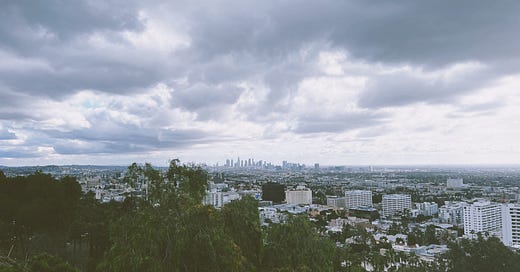A few weeks ago Lisa Olivera sent out this newsletter about how she has 460,000 Instagram followers and not many close friends. The whole piece is really really worth reading but this line specifically hit home for me: “Sometimes it feels embarrassing — like it shouldn’t be that way. It feels like I should know or do better, like I should have friendships figured out by now.”
I thought it was a brave piece like all her work is and this one especially because I feel embarrassed about how little connection I have, too. I have a small handful of extremely close friends, the kind that you put in your will and donate your organs to and talk to on the phone like your thirteen and using three-way for the first time, but most of them live far away or have their own busy lives, their own families. And then I have other spheres of connections: acquaintances I’m friendly with, friends I’m acquaintancely with, people I need to text back, all of you here, and so on. By appearances, I have so much, …



